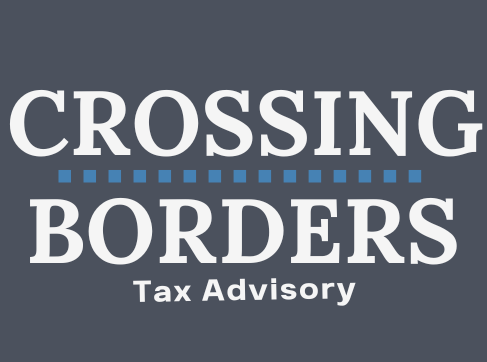When individuals or businesses move across borders, one of the most crucial yet often overlooked aspects is the complete picture for tax planning. Whether relocating for work, retirement, or business expansion, the importance of understanding tax obligations in both the jurisdiction you’re leaving and the one you’re moving to cannot be overstated. It’s not just about departure taxes from one country or the taxes in the destination country; it’s about how two different tax systems interact and how aggressive each jurisdiction is in enforcing its tax laws.
Here’s why a comprehensive approach to cross-border tax planning, considering both the country you’re leaving and the one you’re entering, is essential.
1. Dual Tax Obligations: A Balancing Act
When moving from one tax jurisdiction to another, it’s easy to assume that once you’ve left, your tax obligations to the old country are done. However, many countries maintain the right to tax you even after you’ve left, based on citizenship, residency, or income earned within their borders. For example, the United States taxes its citizens on their worldwide income, regardless of where they live. Or Canada taxing rental income earned by rental properties located within Canada or deferred income such as restricted stock or stock options.
At the same time, your new country may also claim a right to tax your global income once you establish residency there. Without proper tax planning, you could face double taxation—paying taxes on the same income in both countries. While tax treaties and foreign tax credits can help mitigate this, understanding the nuances of these agreements requires careful planning.
2. Exit Taxes and Other Surprises
Countries with aggressive tax authorities often impose what’s known as an “exit tax” on individuals who relinquish residency or citizenship. For instance, Canada considers you to have disposed of certain assets as of your departure date, triggering capital gains tax on any unrealized gains, even though you haven’t sold anything. This can come as a shock to those unaware of this tax trap and for those owning properties or assets that are not liquid, can lead to cashflow issues or more complex and continuing compliance.
Exit taxes are designed to prevent individuals from avoiding taxes otherwise payable in their current jurisdiction by moving to a lower-tax jurisdiction. Departure tax for example, gives Canada one last kick at the can to claim your tax on unrealized gains which have accumulated while resident. Without proper planning, you could face significant tax liabilities before you’ve even settled into your new home.
3. Understanding the Aggressiveness of Tax Authorities
Not all tax authorities are created equal. Some countries are far more aggressive in pursuing tax collection than others, and this can drastically affect your tax situation. For instance, the Canada Revenue Agency (CRA) and the IRS in the United States are known for their rigorous enforcement of tax laws, with Canada conducting reviews and audits at an extraordinary rate and the IRS automatically assessing penalties on those who don’t comply on certain foreign reporting obligations.
It’s important to understand how proactive the tax authority in both your old and new jurisdiction is in terms of enforcing compliance. For example, if you’re moving from a country with a lenient tax authority to one with stricter enforcement, you may need to adjust your tax practices to avoid costly audits or penalties. This includes proper documentation of income, assets, and deductions. AND, more often than not requires hiring expertise to properly advise you and assist you in compliance.
4. Residence vs. Domicile: Which One Applies?
Tax residency rules vary significantly between countries, and understanding the difference between “residence” and “domicile” is critical in cross border tax planning. Some countries tax individuals based on their physical presence (residence), while others consider your long-term intentions (domicile).
For example, the state of California taxes individuals based on their domicile, which means you could still be liable for California taxes even if you’ve physically left the United States, depending on your intent to return. On the other hand, countries like Canada determine tax residency primarily on where you maintain your primary residence and significant ties.
Planning ahead can help you avoid unexpected tax liabilities in your new country of residence. For instance, establishing residency in a new country before severing ties with your old one could result in overlapping tax obligations.
5. Wealth Transfer and Estate Taxes
Cross border moves often involve significant changes to your financial situation, particularly if you’re transferring wealth across borders. In some jurisdictions, moving assets abroad or receiving foreign inheritance can trigger tax liabilities. For instance, many countries have estate or inheritance taxes that apply when wealth is transferred across borders.
In cases where estate taxes exist in both the old and new jurisdiction, you could be taxed twice unless there is a specific tax treaty in place. Proper tax planning is essential to protect your wealth and ensure that it’s passed on to your heirs with minimal tax burden.
6. Take Control of Your Tax Future with Expert Guidance
Cross border tax planning is complex and fraught with potential pitfalls. The rules differ drastically between countries, and tax authorities are becoming more aggressive in tracking global income and assets. To design a financially secure future, it’s essential to work with a tax advisory service that specializes in cross-border taxation.
Crossing Borders Tax Advisory can help you navigate the complexities of cross-border tax situations, ensuring that you fully understand the tax implications in both the jurisdiction you’re leaving and the one you’re entering. We provide expert advice tailored to your specific situation, helping you design your tax future with confidence and avoid costly mistakes.
Crossing Borders Tax Advisory is here to help you imagine the possibilities when you pay less tax and take control of your tax future. Reach out to us for tailored, expert advice to make your move as tax-efficient as possible.



